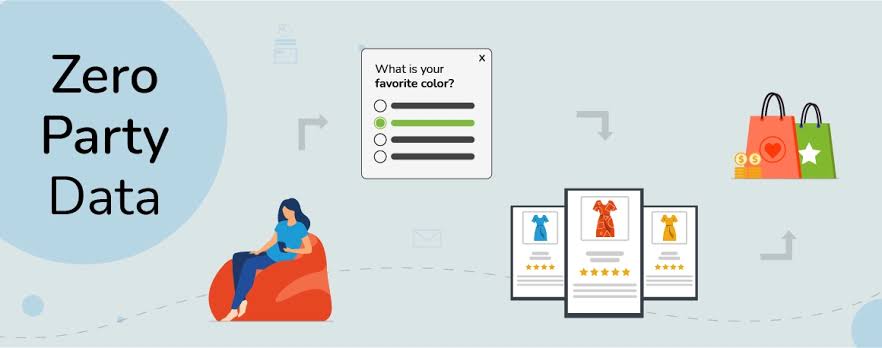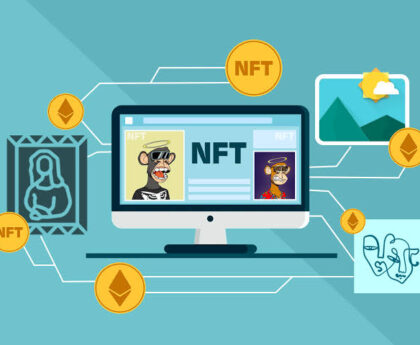
Zero-Party Data, Real Results: No Cookies, Just Consent
Discover how Zero-Party data powers personalised marketing, boosts data privacy, and builds strong customer data strategies for modern brands.
Table of Contents
- The Rise Of Zero-Party Data in a Privacy-First Era
- What is Zero-Party Data?
- Zero-Party Data in Personalised Marketing
- Benefits of Using Explicit Data for Brands
- How to Collect Self-Reported Data Ethically
- Zero-Party Data vs First-Party Data
- Future-Proof your Marketing with Zero-Party Data
The Rise Of Zero-Party Data In A Privacy-First Era

Marketers today are navigating a data revolution. With privacy regulations tightening and third-party cookies crumbling, self reported data has emerged as the most reliable and ethical alternative. The digital age demands a personalised marketing approach, but without invading customer trust. That’s where self reported data steps in—data willingly shared by customers, giving brands a golden opportunity to create meaningful experiences while protecting data privacy.
What Is Zero-Party Data?
Explicit data is information that customers intentionally share with a brand. This includes preferences, purchase intentions, personal context, and feedback. Unlike first-party or third-party data, this form of customer data is voluntarily provided through surveys, preference centres, polls, quizzes, or product configurators.
This type of data is transparent, consent-driven, and ultra-reliable—making it the best foundation for personalised marketing campaigns that resonate.
Zero-Party Data In Personalised Marketing
Today’s consumers crave personalisation—but not at the cost of their privacy. That’s why brands are leveraging self-reported data to tailor messages, offers, and content in real-time. The benefits? Higher engagement, stronger loyalty, and better conversion rates.
Unlike inferred or tracked behavior, this data is clear and accurate. When used wisely, it enhances customer experience, helps create dynamic segments, and brings personalised marketing to life across all platforms—from email to social media to web personalisation.
Benefits Of Using Explicit Data For Brands
- Precision-Driven Personalisation
Using insights like favorite product types, interests, or purchase readiness helps brands craft ultra-specific content and offers that convert. - Stronger Customer Trust
Ethical use of self-reported data builds brand transparency and demonstrates a commitment to data privacy, which is a key trust factor. - Higher Engagement and Retention
When users receive relevant content, they interact more often and stick around longer—boosting loyalty. - Enhanced Campaign ROI
Precise targeting equals better results. No more wasted ad spend on cold, uninterested audiences.
How To Collect Self-Reported Data Ethically
- Interactive Content
Use quizzes, polls, and surveys on your site or social media platforms to gather preferences. - Preference Centers
Allow customers to update their communication preferences, product interests, and frequency of contact. - Gamification
Make data-sharing fun—offer incentives, loyalty points, or early access to those who share their details willingly. - Feedback Loops
Ask for reviews, post-purchase feedback, or invite users to co-create product features.
By focusing on these methods, brands not only improve data privacy compliance but also foster genuine relationships with their audience.
Zero-Party Data vs First-Party Data
Though both are collected directly from users, Zero-Party data differs in one key aspect—intentionality. First-party data is observed: clicks, time on page, or purchase history. Explicit data is declared. For example, while first-party data may tell you what product a customer bought, self reported data tells you why they bought it and what they plan to buy next.
Using both in harmony boosts your customer data strategy. But if you’re prioritising ethical personalisation, explicit data is king.
Out-of-the-Box Applications Of Zero-Party Data
- Hyper-Segmented Email Campaigns: Tailor every message based on stated user preferences.
- Social Media Ads: Align creative with user-declared interests for higher click-through.
- Content Strategy: Build blogs, videos, or guides based on what your users want to learn.
- Product Recommendations: Show products that align with declared customer styles and values.
Future-Proof Your Marketing With Zero-Party Data
The future of marketing belongs to brands that embrace ethical personalisation. By integrating zero-party data into your strategy, you’re not only ensuring data privacy compliance, but also building richer, trust-based customer relationships.
Now’s the time to ditch the guesswork and start listening to what your customers really want. Collect it, respect it, and use it wisely.





